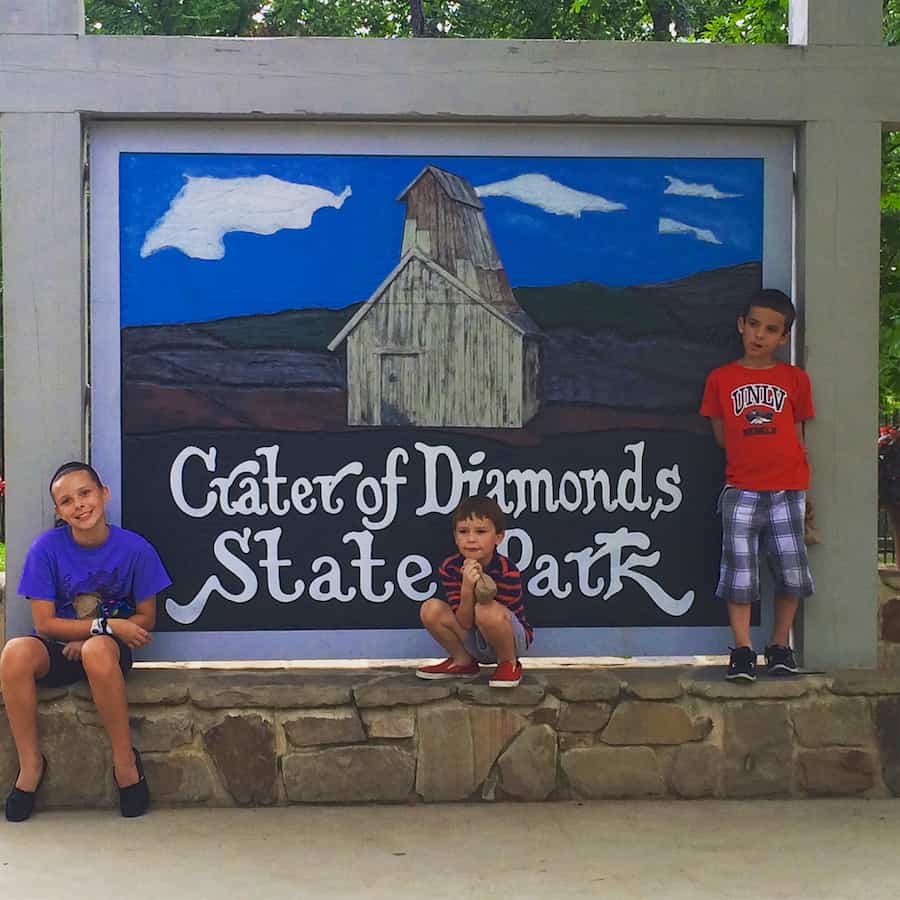
Strike it rich in the hills of Arkansas! Crater of Diamonds State Park in Arkansas is the only finders-keepers diamond mining park in the U.S. With the hope of hitting it big in Arkansas, visitors first learn how diamonds were formed here and about the volcanoes. Before visitors head out to the 37-acre site, diamond miners get a demonstration of how to mine for diamonds. Here’s what you need to know about Crater of Diamonds State Park with kids.
Diamonds in Arkansas
The first diamond was discovered in Arkansas in August 1906. A diamond rush followed, and the land changed hands several times.
The diamond-laden soil was a commercial failure. Then, the area became a tourist attraction, and several operators opened it to individual mining.
In 1972, the State of Arkansas bought the land to develop it as a state park. Since then, 35,000 diamonds have been discovered in the park.
Crater of the Diamonds State Park with Kids
The Crater of the Diamonds State Park features a Visitor Center, a Diamond Discovery Center, and a plowed 37-acre field to mine. Additionally, visitors will find a seasonal water park, restaurant and campground.
Upon arriving, most head to the Visitor Center to learn how diamonds are formed and get an overview of Arkansas geology. This area is an eroded volcanic crater, so it’s rich in rocks, minerals, and gemstones.
Next, the Diamond Discovery Center offers an interpretive area about diamond mining. The Crater of the Diamonds State Park is home to white, brown and yellow diamonds.
Visitors learn about the proper tools of the trade and get a lesson in mining the fields. The Diamond Discovery Center will also identify rocks and minerals for free.
Top Things to Do in Branson Missouri
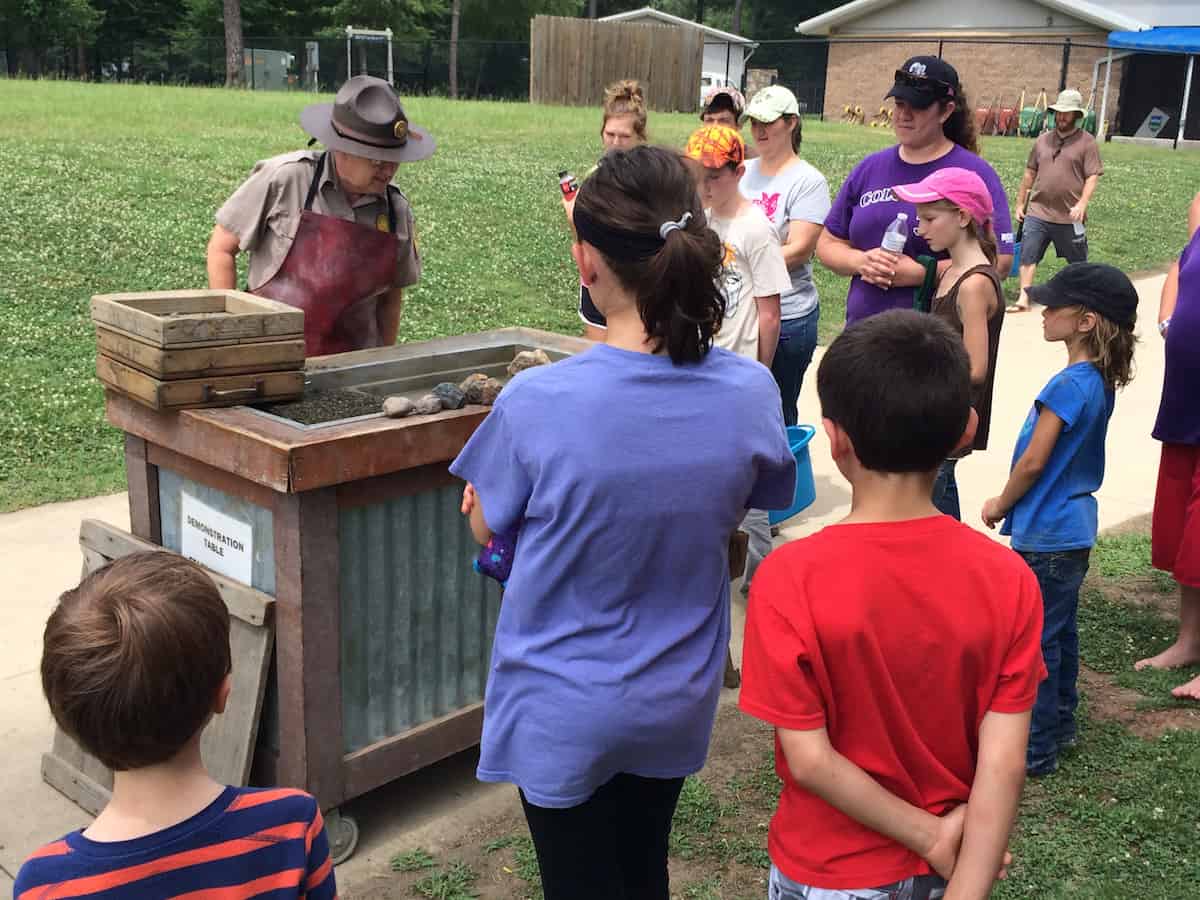
How to Spend the Day at Crater of the Diamonds State Park
First, dress for success and mud. The diamond field is uncovered dirt, so I recommend water shoes or rubber boots. The field lacks trees, so wear a hat and sunscreen. The park does offer an area to wash off muddy shoes.
After attending the demonstration, rent your tools and head to an area that speaks to you. Obviously the areas closest to the buildings are the most searched.
If it has rained recently, you can walk through the field. The rain could have uncovered a diamond for you.
The second method requires getting dirty. Grab a trowel and dig in the first six or 12 inches of dirt, then put it through the screen to remove the dirt and harvest the pebbles. You are looking for a shiny pebble that looks almost metallic.
The soil is hard-baked clay, and the gemstones might be inside a dirt cluster, so you have to break up the rock clusters. This method is followed by visiting the sluice area, a covered pavilion with water troughs. There, you will clean up the pebbles, looking for a diamond to appear.
Finally, if you find some pebbles, the park staff will identify each one for you for free. If you’re lucky, they will also weigh your gemstone.
Best Places for Music in Memphis
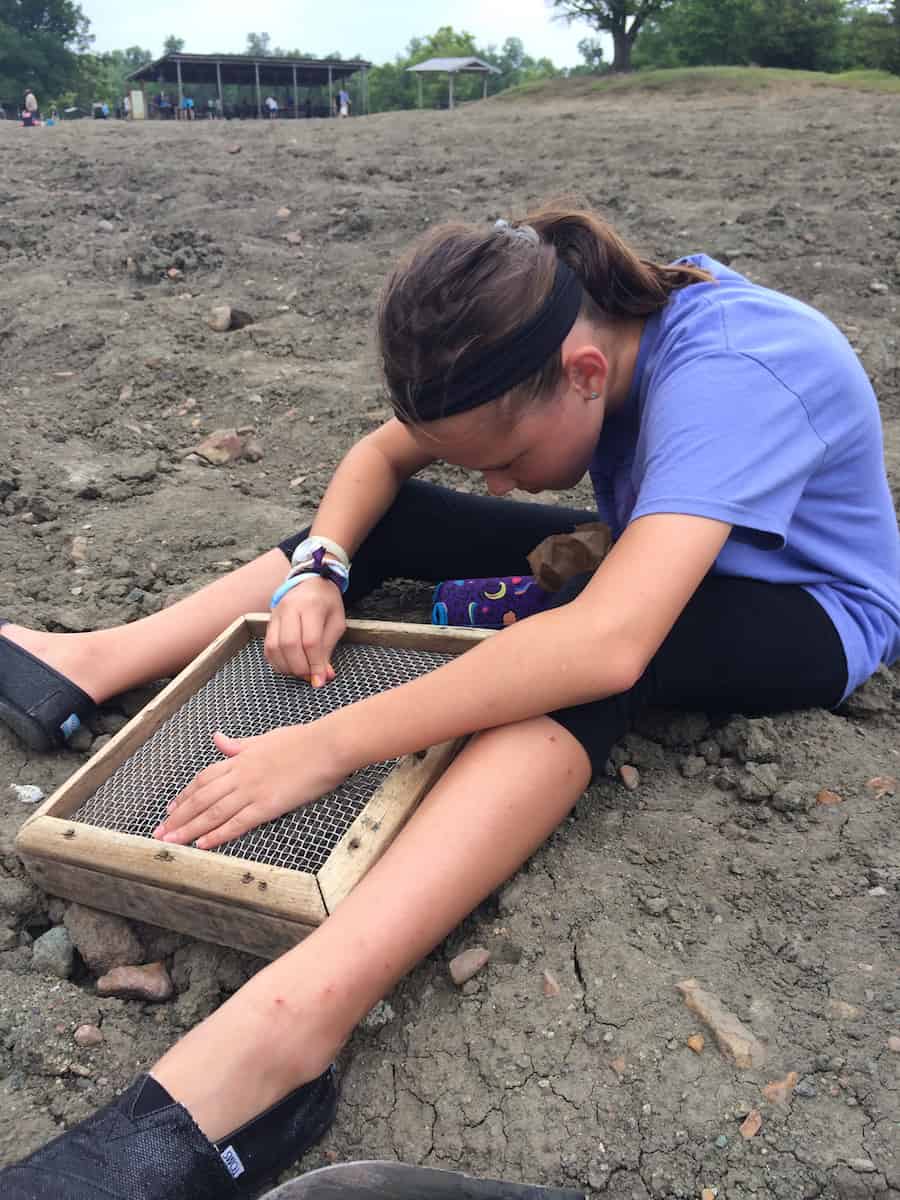
Top Finds in Crater of the Diamonds State Park
Since 1972, here’s a list of the largest diamonds discovered.
- 40.23-carat Uncle Sam Diamond–largest diamond discovered in the U.S.
- 16.37-carat Amarillo Diamond
- 15.33-carat Star of Arkansas Diamond
- 8.52-carat Esperanza Diamond
33 Musts for Pigeon Forge and Gatlinburg Tennessee

Our Experience at Crater of Diamonds State Park
We paid our admission and rented some tools for about $40 and we were ready to discover a diamond in the rough. Then, the park ranger told us we needed to attend the demonstration on diamond hunting. OK, we headed to diamond digging school and felt even luckier.
With little knowledge and absolutely no technique, we hit the 37-acre plowed field. Just a heads up: It’s dirty, so leave the cute sandals in the car.
We dug for an hour before we were hot and sweaty. Next, we took our bucket of treasure-laden dirt to the covered pavilion to wash our soil through a fine screen. This was a bit tedious, but the thrill of discovering the next big diamond pushed me forward. My kids disappeared and splashed in the water trough instead. So, I mentally claimed all the diamonds in my dirt.
I headed to the Diamond Discovery Center with a handful of shiny rocks, feeling lucky for its free diamond identification. After waiting for the next available gemologist, I handed over my collection.
I had a fine collection of quartz and some minerals I don’t remember the names of, mainly shiny, tiny rocks. After spending a few hours working in the dirt, I bought the 50¢ glass vials for my treasures.
But don’t let that discourage you. I didn’t strike it rich, but it’s a fun day, and you will learn about geology and mining. Afterward, you can splash at the water park next door.
Diamond Springs Water Park
If you visit during the summer, you can splash in the Diamond Springs Water Park. It’s a nearly 4,200-square-foot food wading pool with a mining theme. It’s super cute and refreshing for little kids, though it lacks features for bigger kids.
Open daily from Memorial Day to mid-August and weekends only until Labor Day. Hours are 11 a.m. to 5 p.m. Admission is $12 for those over 42 inches tall and $10 for those under 42 inches. Babies under 2 are free, and chaperones (non-swimmers) are $3.
Crater of the Diamonds State Park Camping
The Crater of the Diamonds State Park features a campground with developed sites along with a modern restrooms with hot showers. Find 47 developed sites with electricity (both 30-amp and 50-amp sites) along with water and sewer. Additionally find five walk-in sites. Campground features free WiFi.
Campground open year-round. Sites with electricity, water and sewer are $40 a night. Walk-in sites are $14 a night. Reservations are recommended.
Top Things to Do at Mammoth Cave in Kentucky
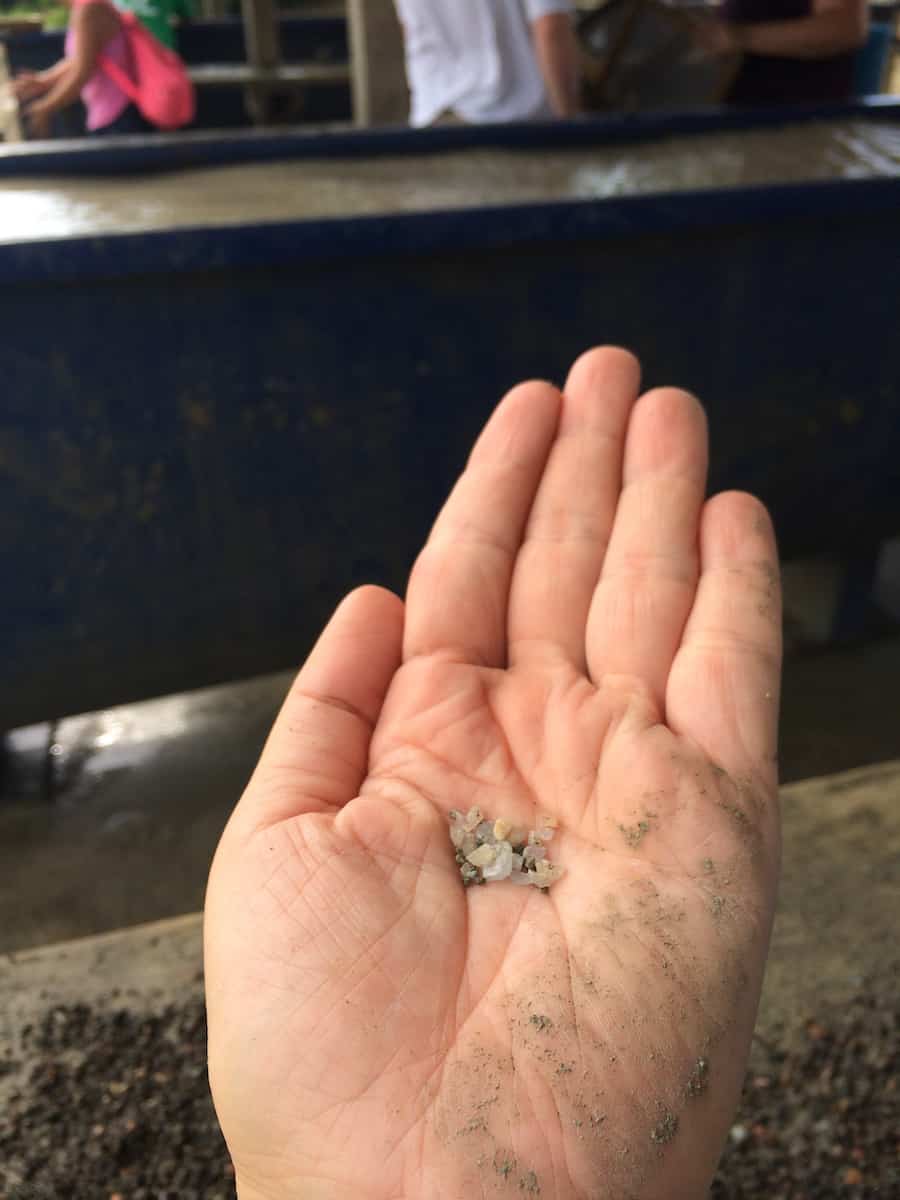
Details for Crater of the Diamonds State Park
It’s about 250 miles from Dallas, Texas, and about 110 miles from Little Rock. It’s 45 miles off of I-30, north of Hope, Arkansas.
Located at 209 State Park Rd. in Murfreesboro, Arkansas. It’s open year-round from 8 a.m. to 4 p.m. and until 7 p.m. from Memorial Day until mid-August.
Adult admission (12+) is $15. Kids (6 to 12) are $7 and kids 5 and younger are free.
Must Dos in Dallas
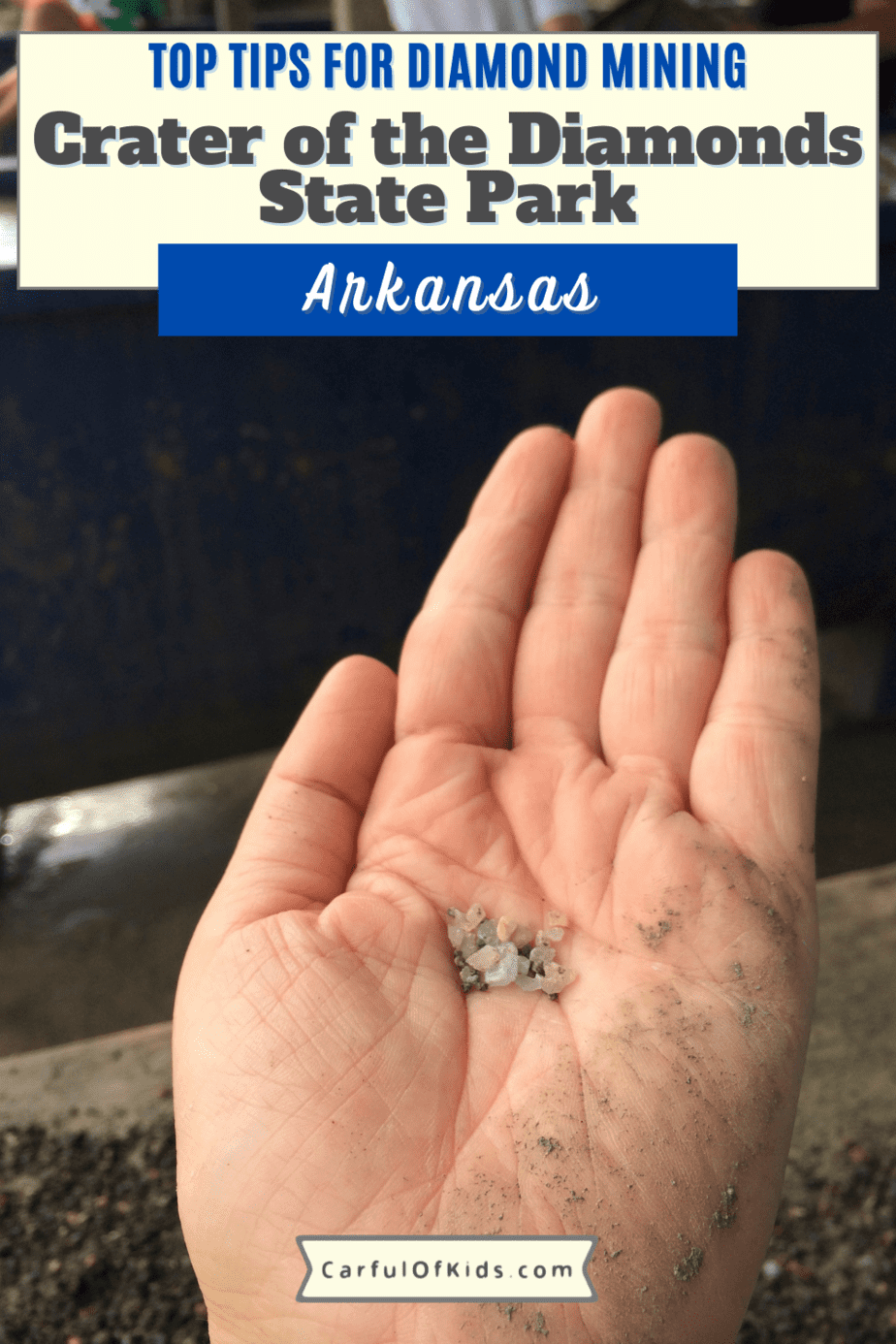

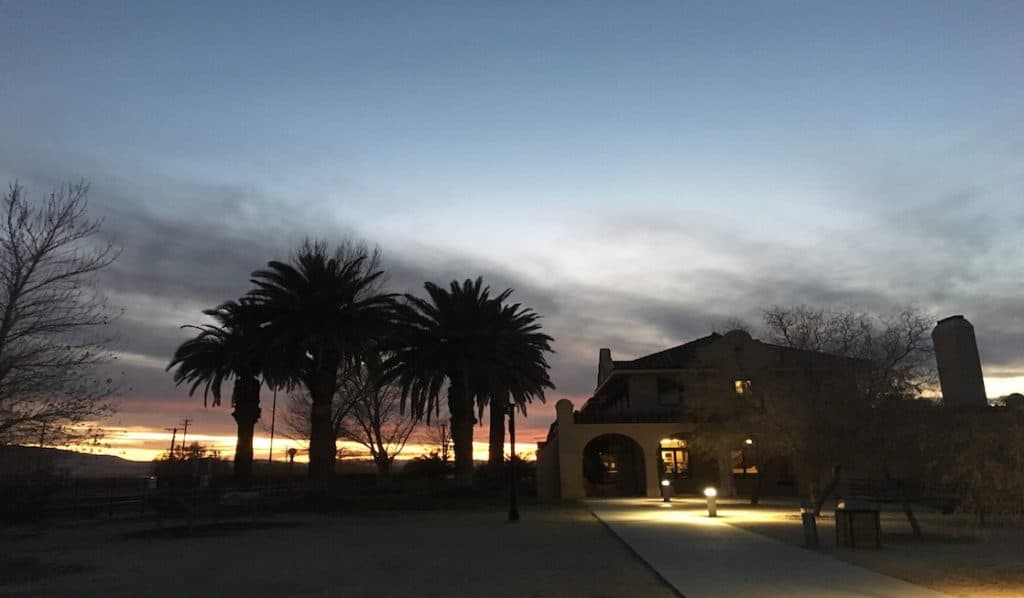
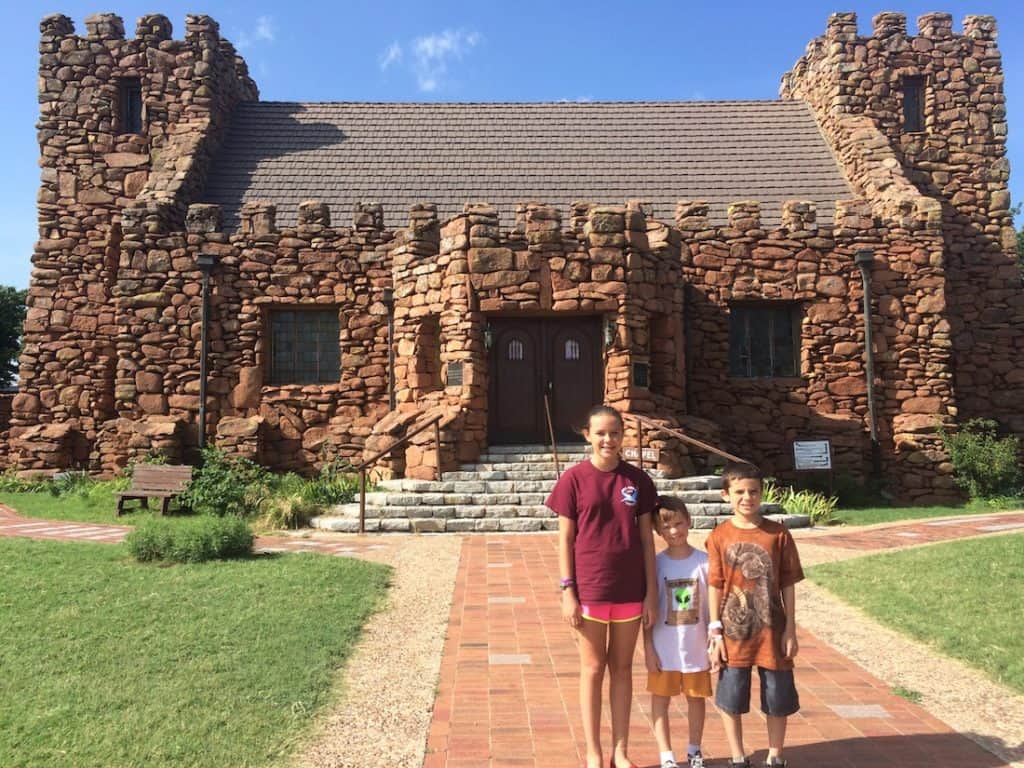
2 Comments
So fun! 🙂
More fun if you find a diamond!